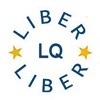LYRASIS Research and an Inclusive Approach to Open Access in the United States
DOI:
https://doi.org/10.53377/lq.11078Keywords:
Open Access, United States, LYRASIS, Publishing ModelsAbstract
In 2020, LYRASIS Research conducted a member survey of predominantly United States (U.S.) higher education libraries to understand the spectrum of attitudes and actions related to Open Access (OA). The results indicated that the U.S. approach to OA is decentralised, lacking the focused trends that are apparent in other areas of the world. The diversity among types of colleges and universities in the U.S. is revealed through discussions about support or lack thereof for APCs, crowdfunding models, preprint repositories, the Subscribe to Open approach, and more. The array of OA approaches that garner support in the U.S. may appear confusing as we strive for scale in our efforts. LYRASIS has used its research findings, in combination with our deep understanding of U.S. higher education libraries, to develop a collaborative approach towards OA that provides multiple incentives and opportunities for libraries serving all types of institutions to engage.
This article, expanding on the LIBER 2021 Conference Presentation of the same name, will outline the results of the survey, the conclusions LYRASIS has drawn, and our work to develop an inclusive approach to a variety of OA initiatives. Our understanding of the landscape of U.S. higher education has led us to develop or support several significant recent OA initiatives, including a fund for OA ebooks focused on United Nations Sustainable Development Goals topics and the establishment of the LYRASIS Open Access Community Investment Program (OACIP).
Downloads

Downloads
Published
Issue
Section
License
Copyright (c) 2022 Hannah Rosen, Celeste Feather, Jill E. Grogg, Sharla Lair

This work is licensed under a Creative Commons Attribution 4.0 International License.





